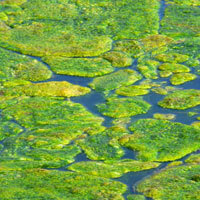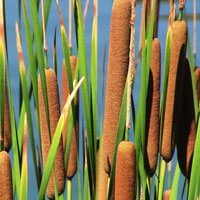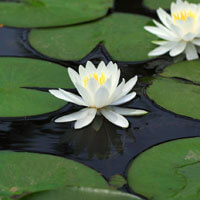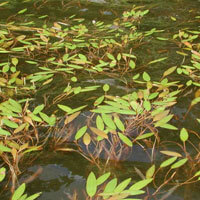How To Identify The Aquatic Vegetation Growing In Your Pond Or Lake
Unwanted aquatic vegetation can affect the beauty of your pond or lake. Left unchecked, it can also begin to damage the health and safety of the habitat or your boating and swimming areas. In this guide, we will help you identify the various types of weeds that can be found growing in the water. Pond weeds can be split into four different categories – Algae, Emergent Weeds, Floating Weeds, and Submerged Weeds.
Algae & Chara

The term Algae refers to a large, and diverse group of aquatic organisms. Algal blooms can pop up in many ponds and lakes and may be referred to by most people as “pond scum.” It can be found floating on the surface of the water. Chara has an appearance that is similar to some submerged aquatic weeds. One of its defining characteristics is its foul odor. This has earned it the nicknames “skunkweed” or “musk grass.”
Emergent Aquatic Weeds

Emergent aquatic weeds are plants that grow along the shoreline of ponds and lakes. They are found in shallow waters, have a root system and a stem. Common examples of emergent weeds are Cattails, Bulrushes, Reed Grass, Alligator Weed, Water Primrose, Longroot Smartweed, and Purple Loosestrife.
Learn more about Emergent Aquatic Weeds
Floating Aquatic Weeds

Floating aquatic weeds may or may not have a root system or stem. It can be found floating on the surface of ponds and lakes and can cause issues with swimming areas and boating. It can also harm the ecosystem of waterways by blocking sunlight that is vital to fish and other foliage. Examples of floating aquatic weeds include Water Lily, Water Shield, Water Lettuce, Spatterdock, Azolla, and Duckweed.
Learn more about Floating Aquatic Weeds
Submerged Aquatic Weeds

Submerged aquatic weeds grow completely underwater unless they are exposed by low water levels. Many of them have leaves and stems that are hollow, allowing for some buoyancy. Their growth can be affected by many factors such as light penetration, nutrients, and the temperature of the water. Examples of submerged aquatic weeds include American Pondweed, Bladderwort, Clasping Leaf, Coontail, Curly Leaf, Eurasian Milfoil, Elodea, Hydrilla, Sago, and Tape Grass.
